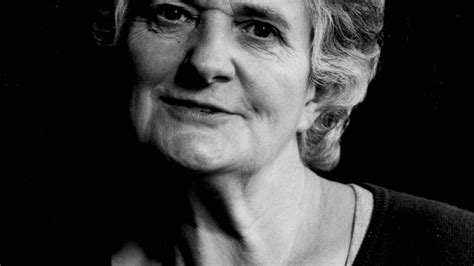A Quote by Jonathan W. Galassi
There is something essential and necessary about the immediacy and democracy of poetry. If you look at the history of literature, poetry is the one enduring genre from Homer to Ashbery - no other literary form has lasted as long. The novel is only two or three hundred years old... And yes, it's mainstream if we look back, we often turn to poetry to encapsulate what was going on in a particular moment because it crystalizes the experience in a very condensed and meaningful way.
Quote Topics
About
Back
Because
Condensed
Democracy
Encapsulate
Enduring
Essential
Experience
Form
Genre
Going
History
Hundred
Hundred Years
Immediacy
Lasted
Literary
Literature
Long
Look
Mainstream
Meaningful
Moment
Necessary
Novel
Often
Old
Only
Other
Particular
Poetry
Poetry Is
Something
The History Of
Three
Turn
Two
Very
Way
Years
Yes
Related Quotes
Poetry is the essence of everything, and it’s through deep contact with reality and living fully that you reach poetry. Very often I see photographers cultivating the strangeness or awkwardness of a scene, thinking it is poetry. No. Poetry is two elements which are suddenly conflict — a spark between two elements. But it’s given very seldom, and you can’t look for it. It’s like if you look for inspiration. No, it just comes by enriching yourself and living.
When people decide to talk publicly about poetry as an art form and how it's received, they often get very abject about it: "Nobody reads poetry," and then a thousand people write back, "No, we read poetry." There's an abundance of this negative preaching to the choir, and it's very similar to the experience I'm having.
We do have to learn poetry at school. Poetry is interesting to me, particularly Chinese poetry. It's like an ancient form of song. There's five sentences, seven sentences - they're very different from English poetry. Chinese poetry is much more rigorous. You can only use this many words, and they will form some kind of rhythm so people can actually sing it. To me, poetry is quite abstract but also quite beautiful.
There's a sameness about American poetry that I don't
think represents the whole people. It represents a poetry
of the moment, a poetry of evasion, and I have problems
with this. I believe poetry has always been political, long
before poets had to deal with the page and white
space . . . it's natural.
I didn't ever consider poetry the province exclusively of English and American literature and I discovered a great amount in reading Polish poetry and other Eastern European poetry and reading Russian poetry and reading Latin American and Spanish poetry and I've always found models in those other poetries of poets who could help me on my path.
Poetry has an indirect way of hinting at things. Poetry is feminine. Prose is masculine. Prose, the very structure of it, is logical; poetry is basically illogical. Prose has to be clear-cut; poetry has to be vague - that's its beauty, its quality. Prose simply says what it says; poetry says many things. Prose is needed in the day-to-day world, in the marketplace. But whenever something of the heart has to be said, prose is always found inadequate - one has to fall back to poetry.




































